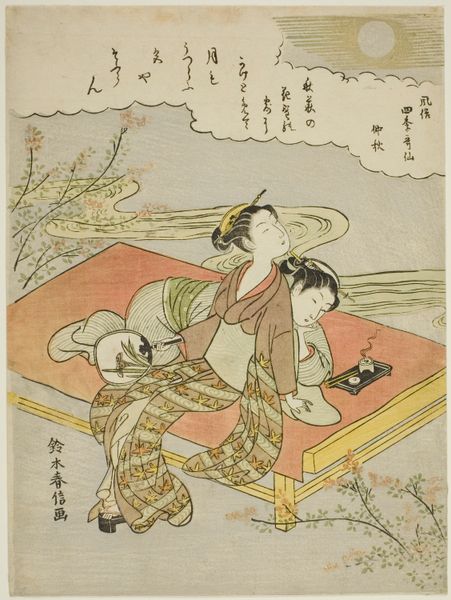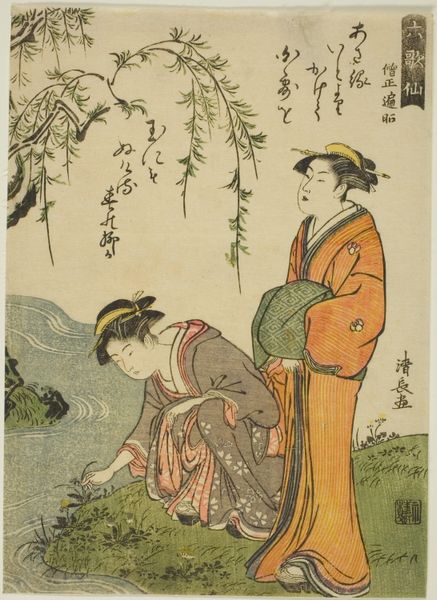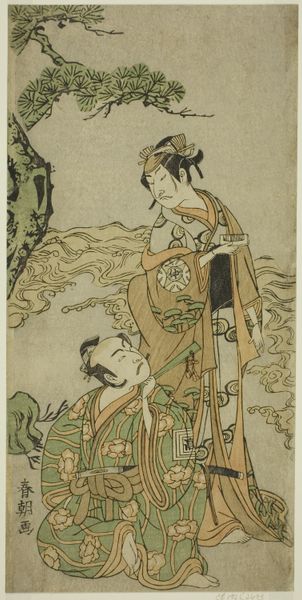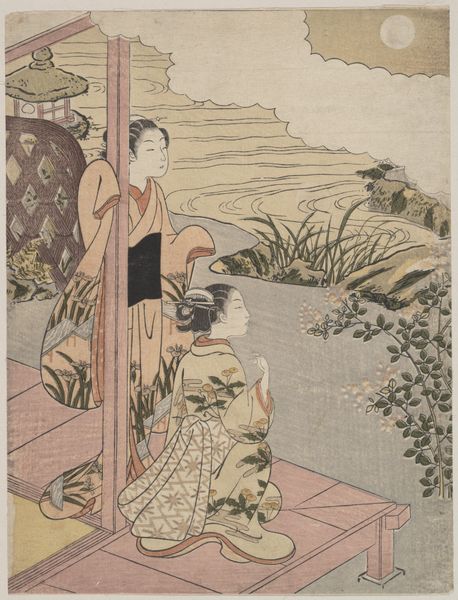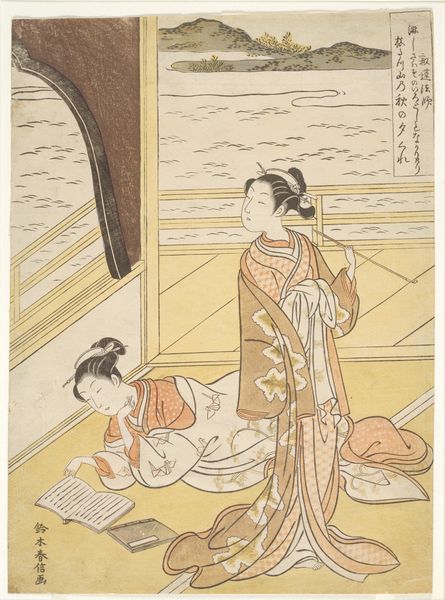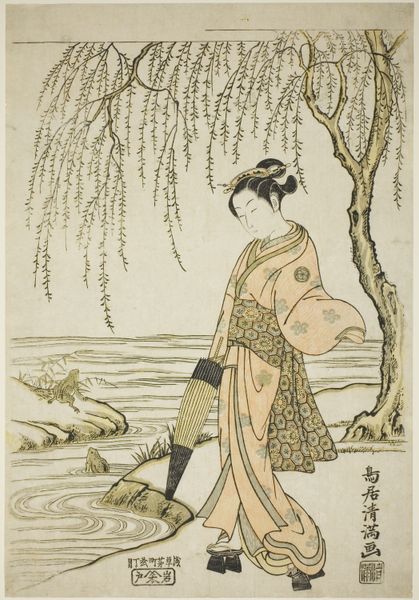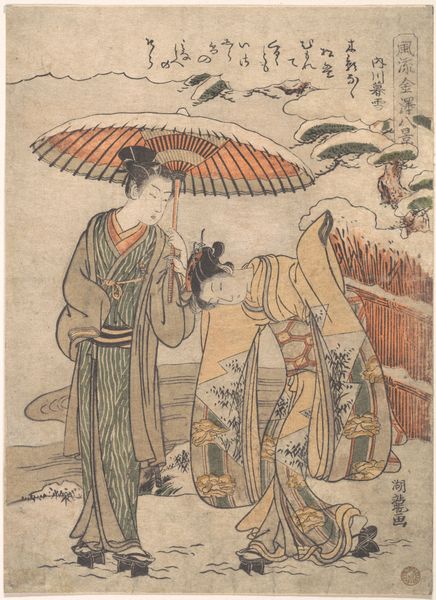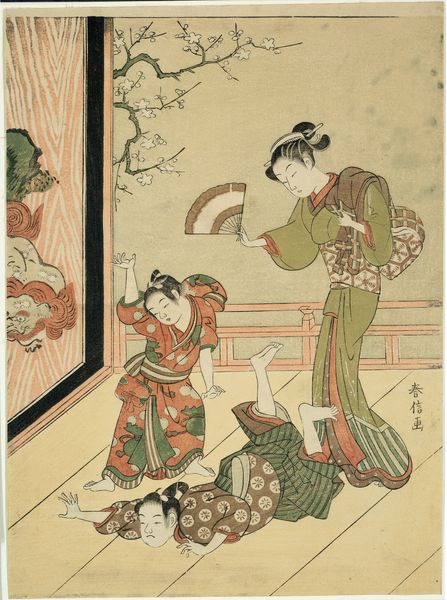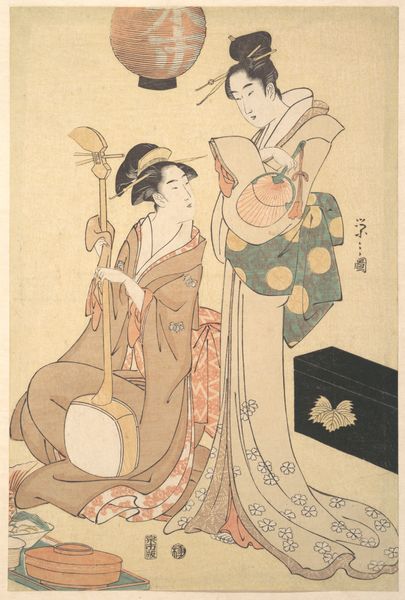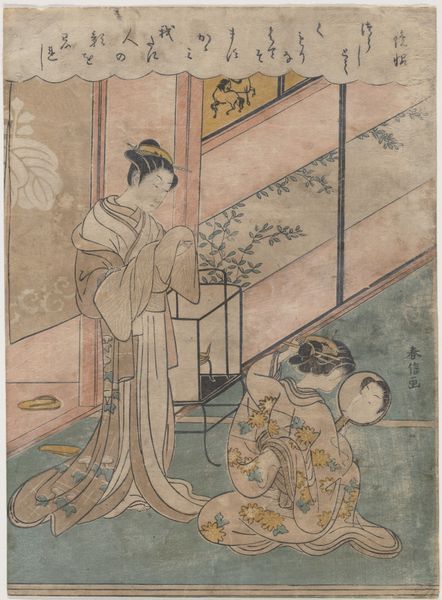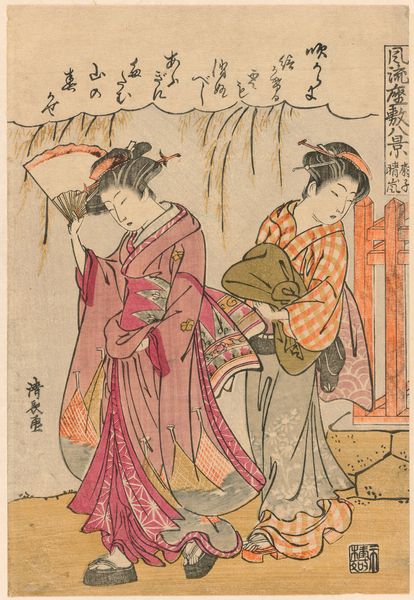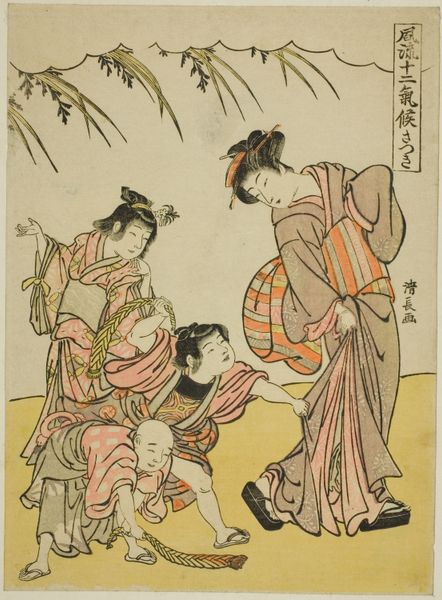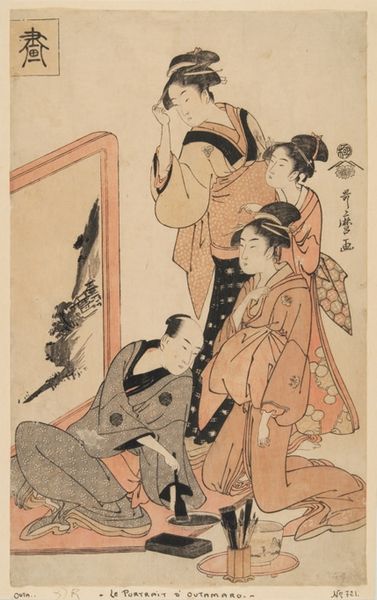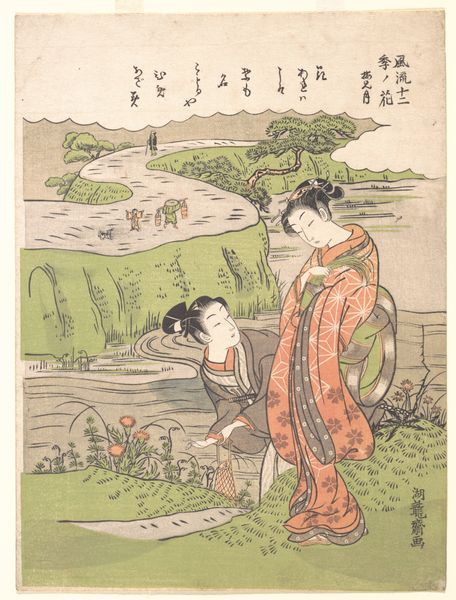
Two Women at the Waterside c. 1766 - 1767
0:00
0:00
print, woodblock-print
# print
#
asian-art
#
landscape
#
ukiyo-e
#
japan
#
figuration
#
woodblock-print
#
genre-painting
Dimensions: 10 1/2 × 8 in.
Copyright: Public Domain
Editor: This woodblock print, "Two Women at the Waterside," by Suzuki Harunobu, was made around 1766 or 1767. The pastel colours give it a calm, serene quality. What catches your eye? Curator: The reoccurring motif of flowing water. Notice the delicate rendering of the river's surface and then look closer – consider the garments. Do you observe how the robes' designs seem to mimic those subtle waves, reflecting and embodying the watery essence? It evokes associations with purity, the passage of time, and emotional fluidity. Editor: That's an interesting point. So, the water is a symbol of... transformation? Curator: Precisely. In many cultures, water signifies cleansing and renewal. What else might these two figures represent in relation to this symbolism? Editor: They’re young, seemingly innocent. Perhaps it reflects a transitional phase in their lives? Curator: A perceptive observation. And their placement by the water, a traditional boundary, could imply their relationship to cultural memory: The women's subtle gesture toward the water's surface asks us to contemplate not just the beauty of the visible world but its symbolic depths and its mirroring of human experience. How fascinating. Editor: I never would have picked up on so many layers of meaning. Now the work is much more resonant. Curator: Indeed. That capacity for symbolic depth elevates art beyond mere aesthetics, to reflect the broader cultural currents and enduring human concerns.
Comments
No comments
Be the first to comment and join the conversation on the ultimate creative platform.
